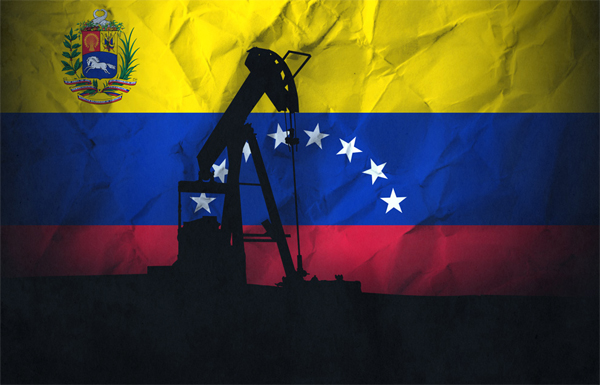- European majors review contracts after Chevron gets new deal
- Venezuela is trying to boost its beleaguered oil industry

Fabiola Zerpa and Nicolle Yapur, Bloomberg News
CARACAS
Energiesnet.com 02 16 2023
European oil companies are pressing Venezuelan President Nicolas Maduro for greater control of their operations in Venezuela, after US driller Chevron Corp. renegotiated its contract last year.
Italy’s Eni SpA and Spain’s Repsol SA are reviewing drafts of contracts after holding a series of meetings with high-ranking members of government in which they asked for operational control at oil and gas ventures jointly held with state energy company PDVSA, according to people familiar with the matter who asked not be named because the information is private.
Chevron received a similar deal last year, raising expectations from analysts that Venezuela would give other energy companies broader control over joint ventures. Eni, Repsol and French company Maurel et Prom have the capacity to pump an additional 50,000 to 80,000 barrels per day if they increase operations in the South American country, according to Francisco Monaldi, lecturer in energy economics at Rice University’s Baker Institute for Public Policy.
While even an extra 80,0000 barrels a day would do little to immediately impact global energy markets, the move would be the latest sign of an advancing political agenda in the nation. Maduro used the Chevron deal to call on the US to ease more sanctions on the country’s beleaguered oil industry. It would also add to Venezuela’s efforts to increase production in an industry responsible for the vast majority of its exports. The country’s current output of around 690,000 barrels a day is roughly one-third of what it was five years ago, according to OPEC.
Eni declined to comment. Repsol didn’t reply to request for comment. Venezuela’s oil ministry office and Petroleos de Venezuela SA didn’t reply to a request for comment. Eni and Repsol hold oil and gas ventures in Venezuela. Cardon IV, a jointly-run offshore venture, supplies natural gas to most of Western Venezuela. On the oil side, they both each hold three ventures partnered with PDVSA.
Latin America, home to a fifth of the world’s oil reserves, has largely missed out on its full potential to cash in on higher oil prices over the last few years amid a potent combination of mismanagement, limited finances and political missteps. Venezuela has also faced the hurdle of economic sanctions. Increasing output would help to shore up the region’s economies, which deal with some of the worst wealth inequality in the world, while also helping to boost tight global energy supplies.
- Read more: Billions in Oil Riches Vanish in Latin America as Pemex Stumbles
If the European oil companies are granted more control from the Venezuelan government, it isn’t clear if the companies would need an additional permission from the US Treasury to avoid secondary sanctions before increasing production.
Eni and Repsol began negotiations with Venezuelan officials, including Vice President Delcy Rodriguez, in mid-2022. But the negotiations have taken on momentum more recently, according to the people. The Venezuelan government has requested that in exchange for more control at oil fields, the companies make investments in gas projects.
Venezuela’s production has suffered since the US slapped the country with sanctions in 2019. Eni and Repsol ventures have also decreased. Both companies hold a waiver from US Treasury Department that lets them take oil shipments from PDVSA to offset 2022’s sales from a natural gas project to supply the domestic market. In a recent move, they agreed to a swap deal to load 4 million barrels of Venezuelan oil through March to continue an agreement reached with Maduro to offset PDVSA debt.
- Read more: Venezuela In Talks with Eni, Repsol on Gas Venture: Minister
In November, the US Treasury eased some restrictions on Chevron, allowing the firm to produce and export Venezuelan oil. With more control over its operations, Chevron has raised its production to 90,000 barrels a day from 50,000 barrels a day, helping it recoup part of the debt owed by PDVSA.
The move from the US government came as President Joe Biden asked American oil companies to boost production in order to combat higher gasoline prices that have burdened consumers.
bloomberg.com 02 15 2023












